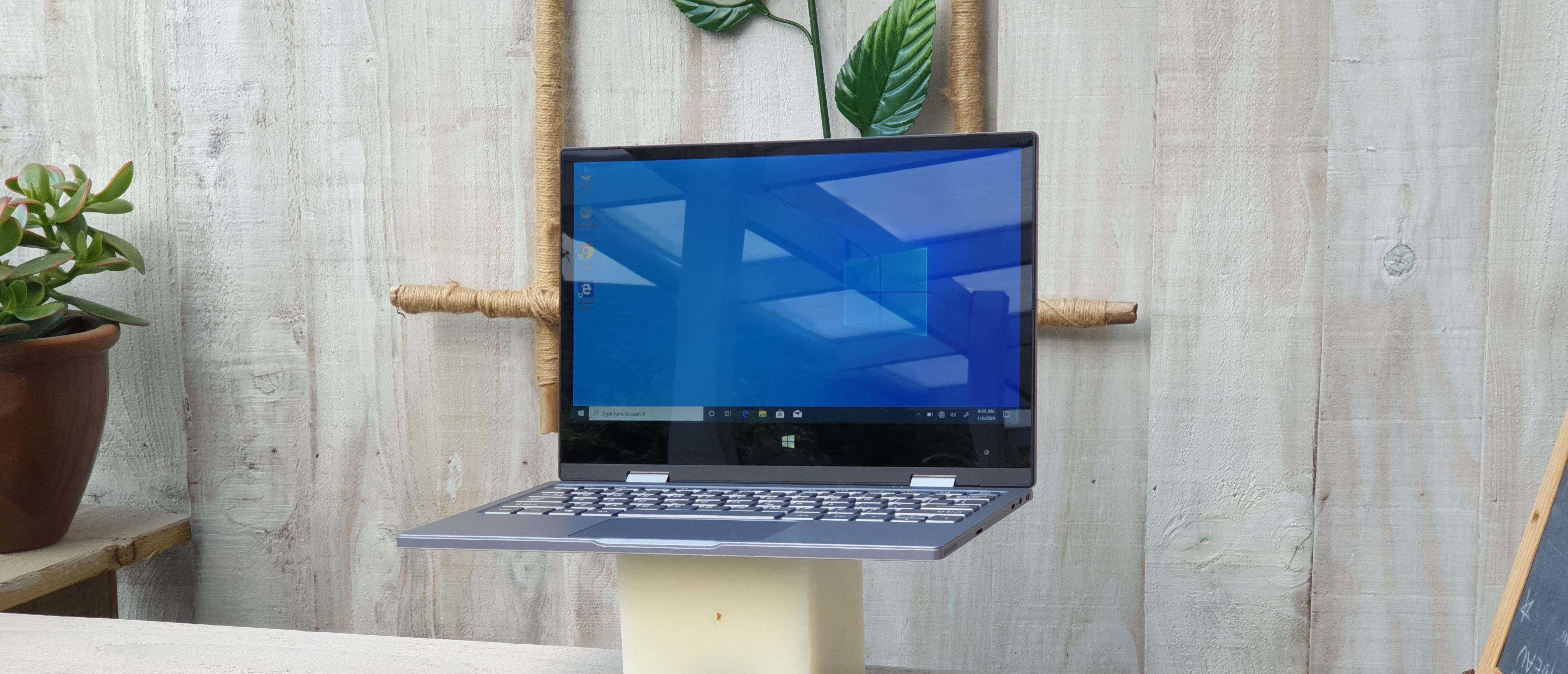TechRadar Verdict
The BMax Y11 convertible laptop is a 2-in-1 device based on a mature chassis that has been around for a few years already. Its aggressive pricing, rather than anything else, is what makes it worthy of consideration, not the performance or feature list.
Pros
- +
Very cheap for a convertible laptop
- +
Solidly built with a great finish
- +
Very good performance for the budget
Cons
- -
The battery life is too short
- -
Keyboard is crammed
- -
Keyboard not backlit
- -
No full-size connectors
- -
Odd location of the webcam
Why you can trust TechRadar
In a surprising twist, we received the BMax Y11, a convertible laptop that sports an 11.6-inch touchscreen display. We say surprising as it is not the first time we’ve seen the exact chassis; indeed, we saw the Teclast TBook F5 in January 2019 and the Jumper EZBook X1 from December 2018 sporting an identical design, down to the location of the ports and buttons. Note that the bigger brother of the Y11 is called the Y13 Pro
Price
Banggood sells the BMax Y11 for $285.99 at the time of writing with the code BGBmax002. Note that, while this price includes delivery, it is exclusive of any taxes that may be levied by the relevant authorities or the courier companies on behalf of the vendor.
This laptop was provided by online Chinese retailer Banggood and customers can grab the BMax Y11 for $285.99 using the code, BGBmax002. That’s a not-so-insignificant discount of $24.
- Want to buy tech from online Chinese retailers? Read this first.
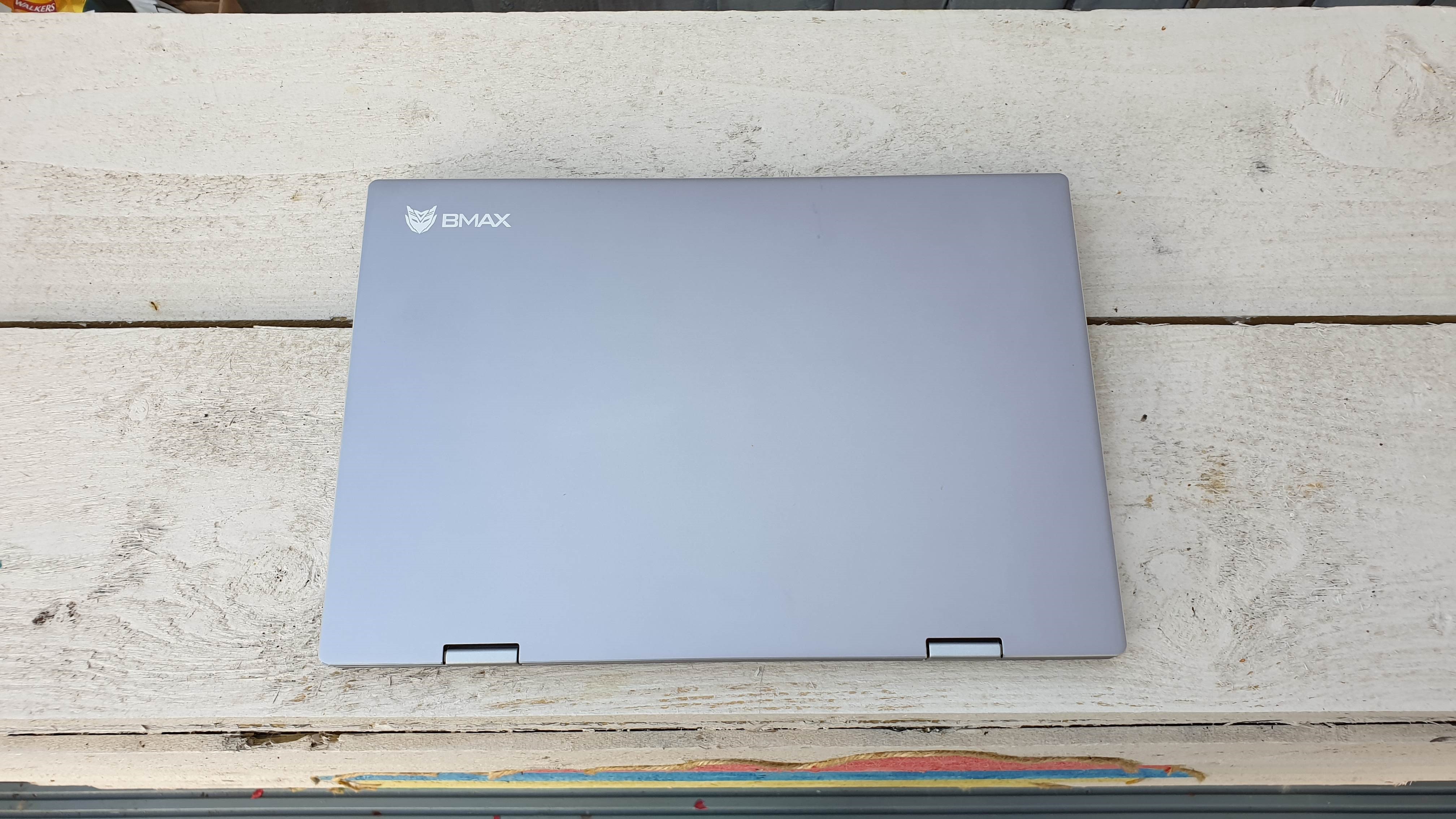
Design
It is likely that Teclast, Jumper, BMax and few others use the same ODM and are loosely connected, perhaps the way Lenovo, Medion, Motorola, Fujitsu Client Computing and NEC are connected. Economies of scale can be realised by (re)using existing R&D facilities and suppliers; there’s no need to reinvent the wheel.
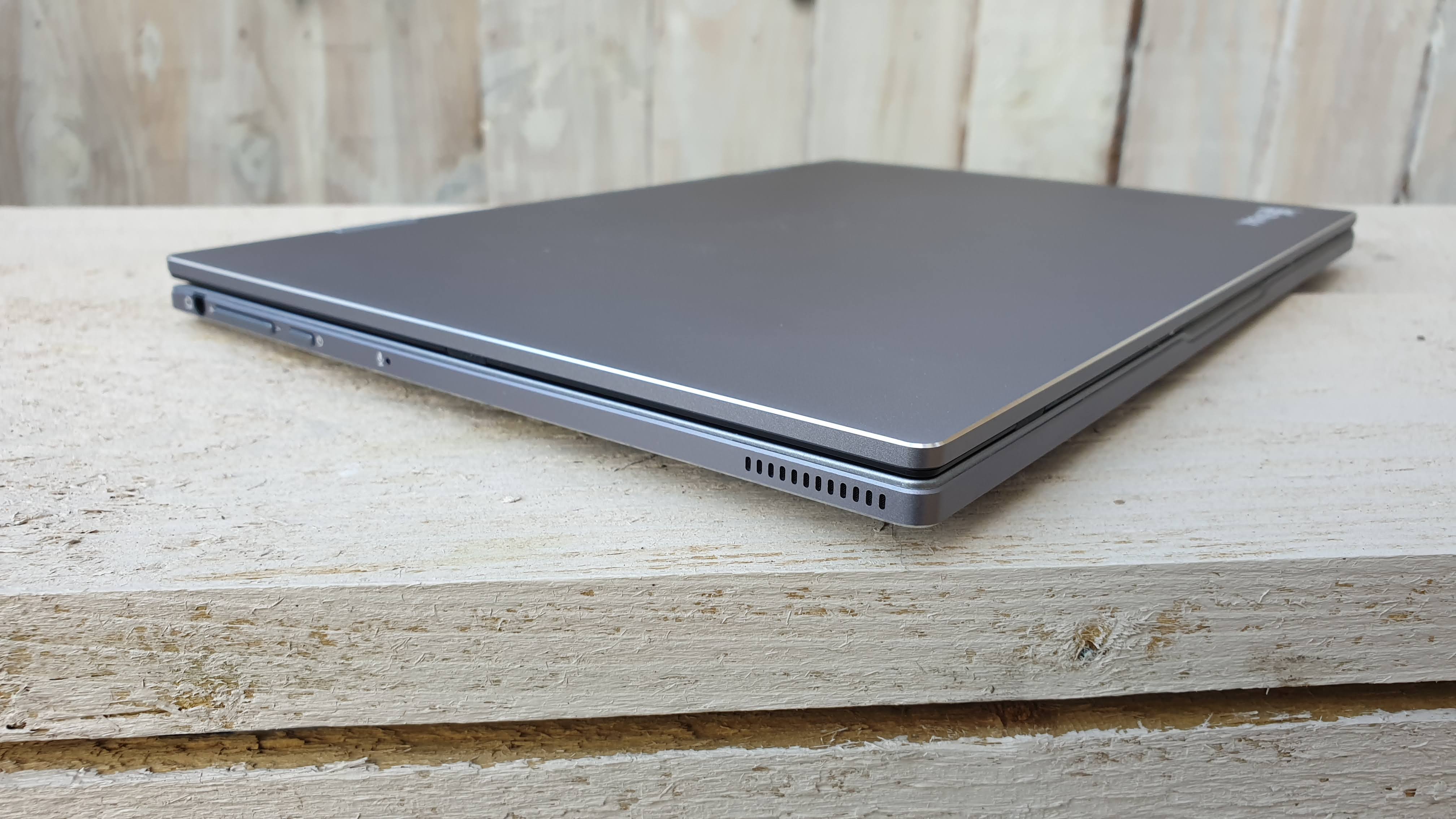
So no surprise that the Y11 looks as nimble and small as its forebears. It is made mostly of an aluminum alloy with a brushed finish, enhanced by silver chamfered edges that give it a premium look; that’s not necessarily the case for the BMax logo which looks suspiciously like that of the Transformers franchise.
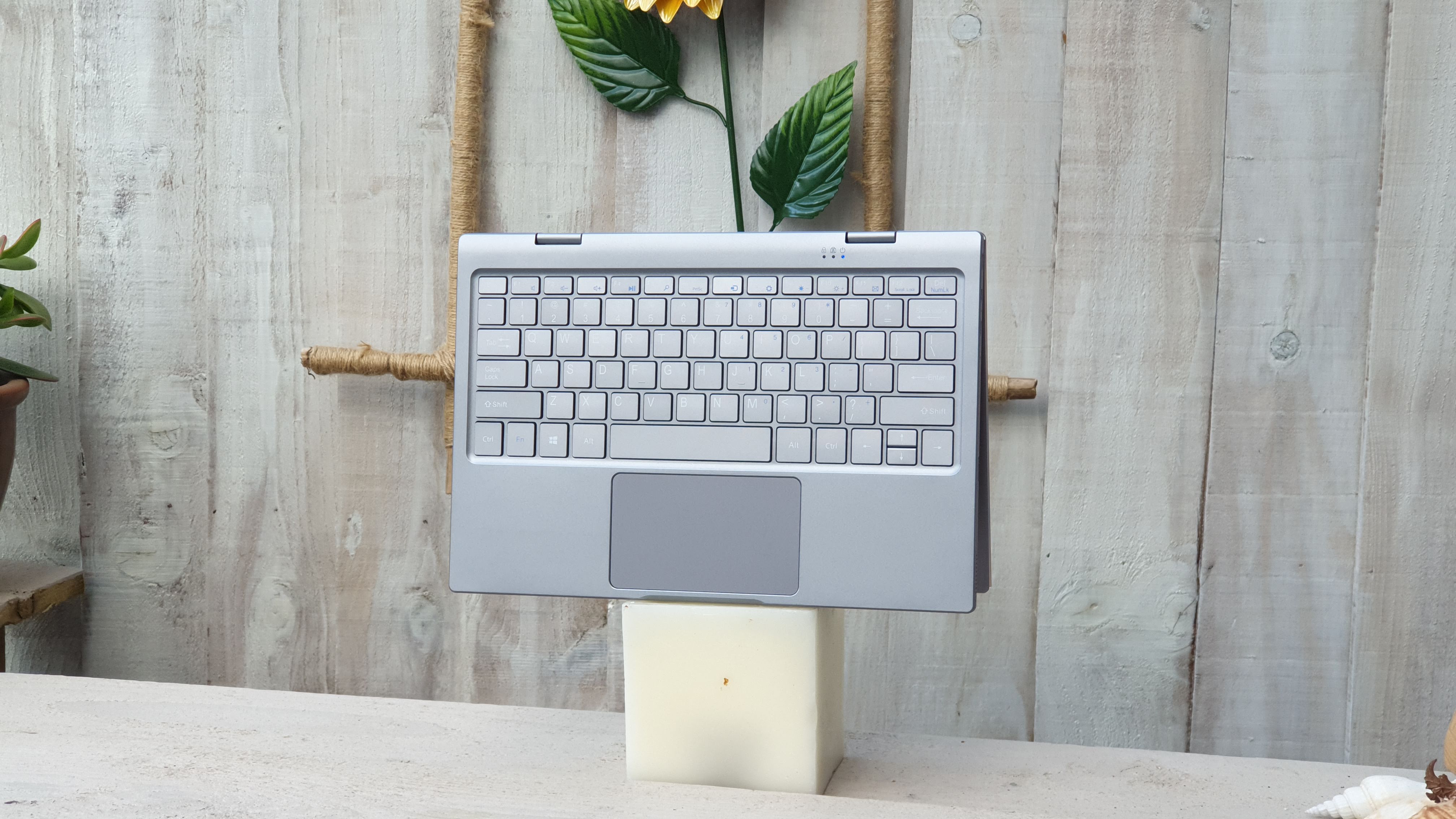
The device can be transformed into a tablet by rotating the screen 360 degrees. At 13mm thick, a footprint that’s smaller than an A4 sheet (274.5 x 187mm) and a weight of under 1Kg, it is eminently portable. Its display is slightly reflective because of the full lamination manufacturing process but it earns cookie points for the tiny bezels.
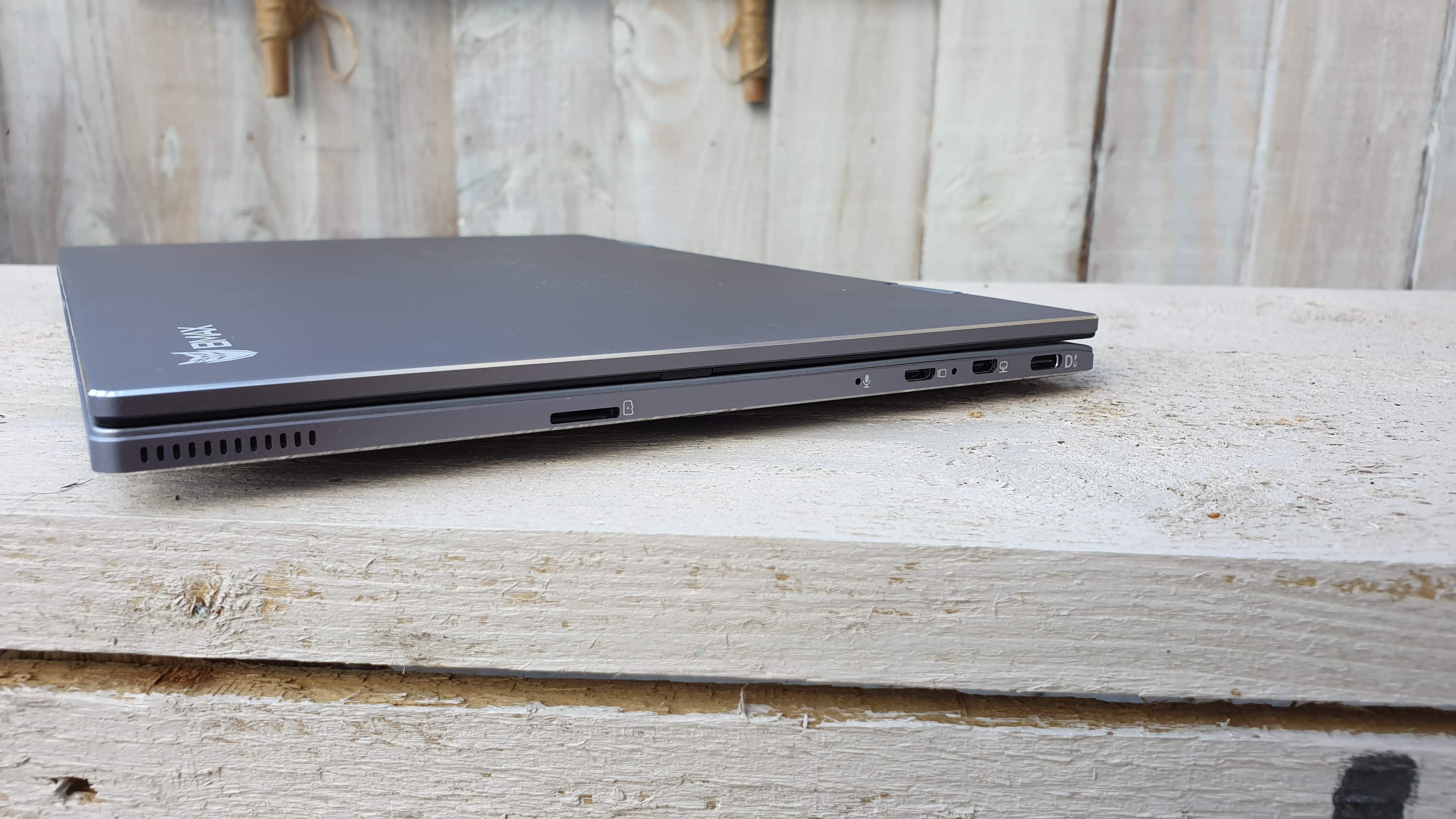
Connectors and expansion capabilities on each side include a microSD card reader, a microHDMI port, a Type-C connector that doubles as the power port, an audio jack, a microUSB port that needs an adaptor to be fully functional, the power button and last but not least, physical power buttons.
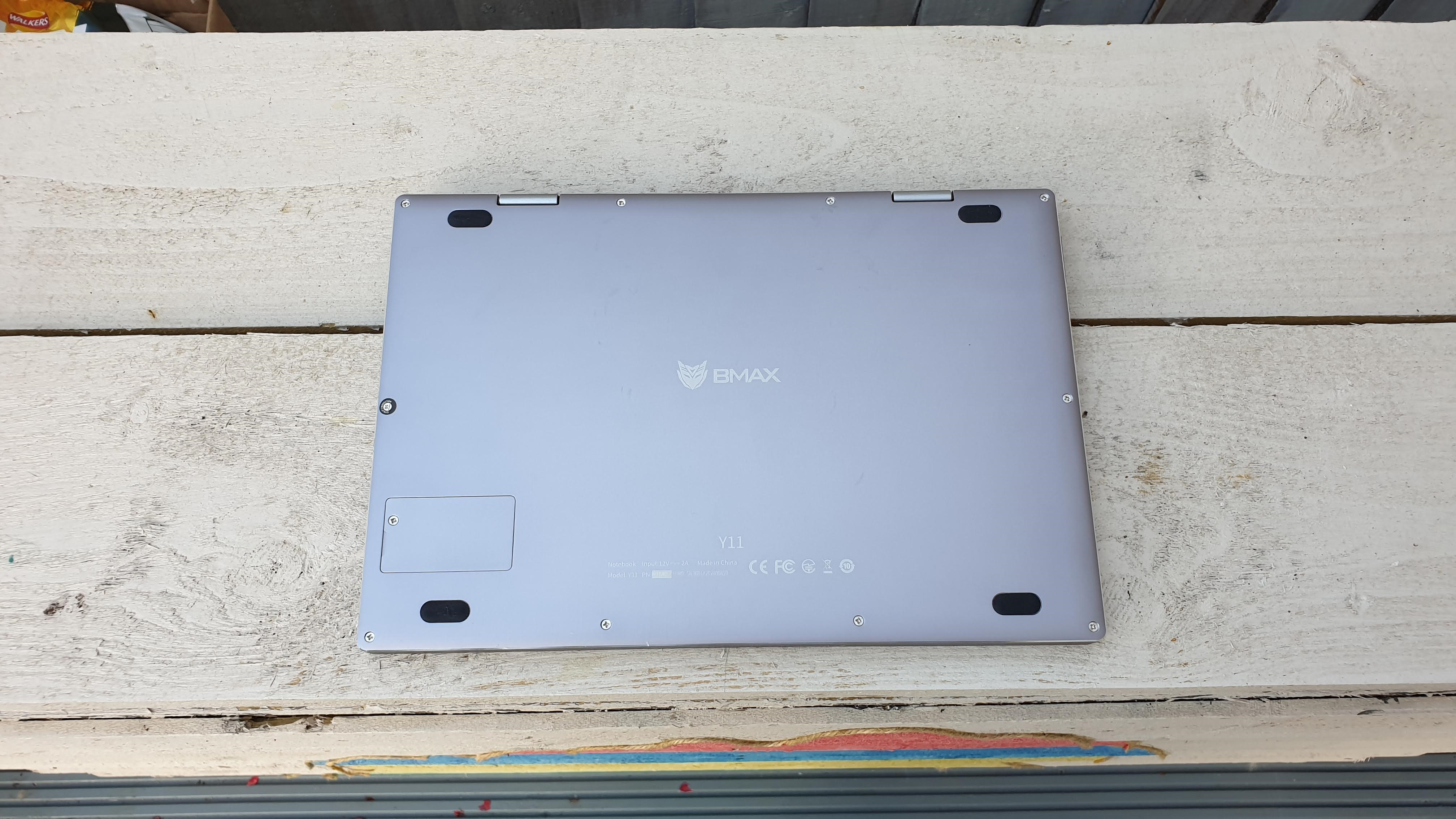
Hardware
Here are the full specs of the BMax Y11 configuration sent to TechRadar Pro for review:
CPU: Intel Celeron N4120
Graphics: Intel UHD Graphics 600
RAM: 8GB DDR4
Screen: 11.6-inch FHD resolution
Storage: 256GB SSD Foresee
Ports: 1 x USB C, 1 x microUSB, 1 x microHDMI, microSD card reader, audio jack
Connectivity: Intel Wireless-AC 4165, 802.11ac Wi-Fi, Bluetooth 4.2
Weight: 1kg
Size: 274.5 x 187 x 13 mm (H x W x D)
Battery: 26.6Whr
Compared to its predecessors, the Y11 has three notable upgrades. Gone is the Intel Celeron N4100 and in its place a Celeron N4120 has slotted in; the latter has exactly the same specs (quad-core, 4-threads, 4MB cache) as the former bar the higher boost speed (2.6GHz vs 2.4GHz); the Intel UHD Graphics 600 video subsystem remains.
The storage has been upgraded to a 256GB Foresee-branded SATA SSD while the WI-Fi is now handled by an Intel Wireless-AC 4165 part. The rest of the configuration is similar: a 12V,2A (24W) power supply unit, the 11.6-inch full HD IPS touchscreen display, Bluetooth 4.2, a 26.6Whr battery, 8GB LPDDR4 memory and a 1-megapixel webcam. Note that a separate stylus can also be purchased.
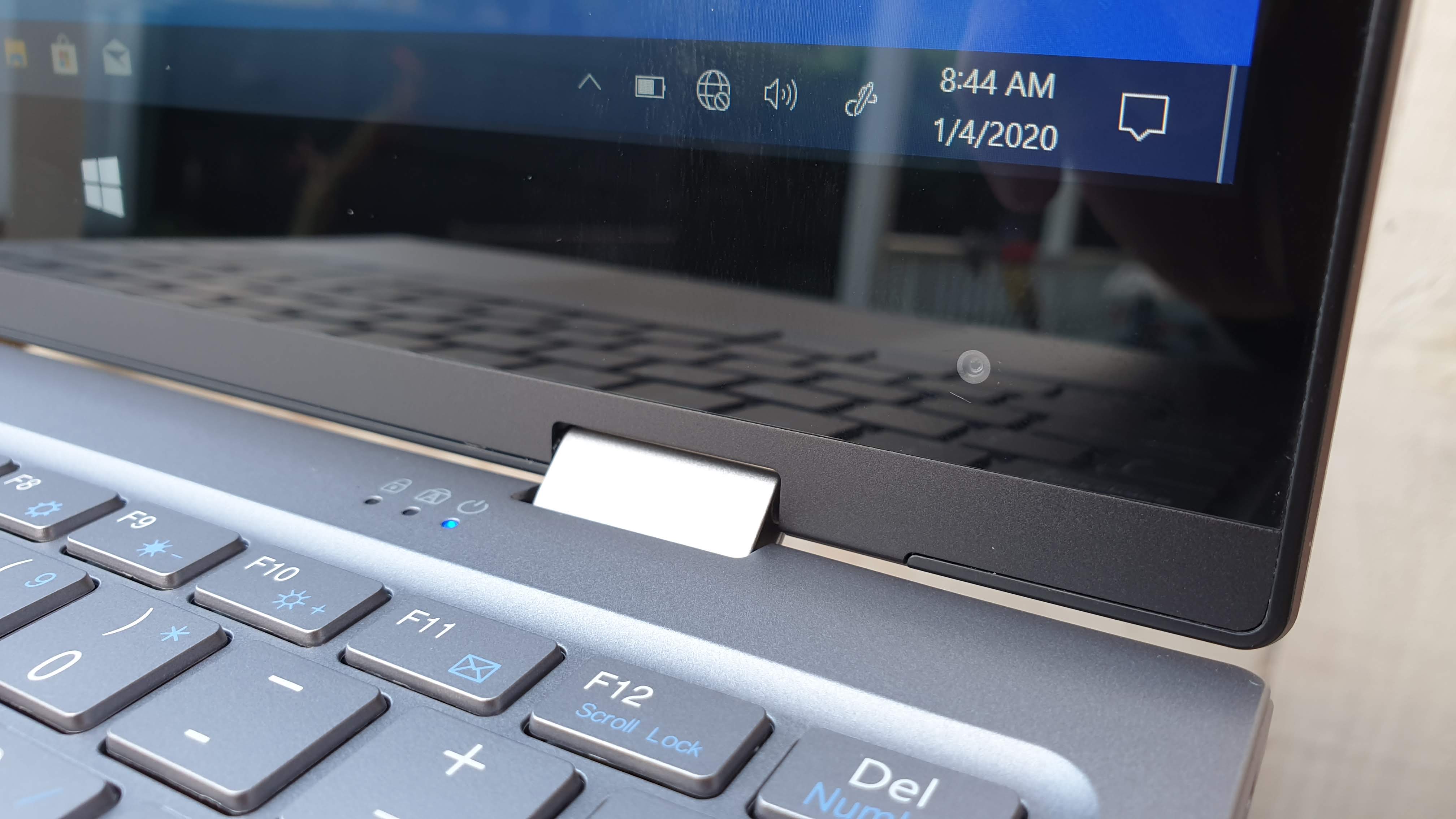
Performance and in use
Here’s how the BMax Y11 performed in our suite of benchmark tests:
Passmark: 1292
Passmark CPU: 2507
CPU-Z: 205 (single-thread); 821 (multi-thread)
Geekbench: 433 (single-core); 1511 (multi-core); 1408 (compute)
CrystalDiskMark: 536MBps (read); 471MBps (write)
Cinebench CPU: 518
Novabench: 744
Atto: 521MBps (read, 256mb); 450MBps (write, 256mb)
AJA: 436MBps (read); 424MBps (write)
Windows Experience Index: 4.5
The processor is the fastest low power processor (6W or less) and paired with enough memory and a fast SSD provides enough power for most mundane office tasks. A rough rule of thumb is that the processor will be as fast as if not faster, than the Intel Core i3-7020U processor (based on Passmark’s CPUBenchmark database).
The webcam is located on the lower right corner of the display, which is not ideal for video conferencing. There’s no full size ports, which means that you will have to use a docking station or a USB Hub to make the most out of the device, which in turn could negate its most powerful USP, its extreme portability.
The small battery capacity translates into one of the worst battery life we’ve had for quite some time at 3hr24 minutes. While it is on par with our expectations (given our past experience with convertible laptops based on the same chassis), we can’t help but think that there’s absolutely no excuse for something like that.
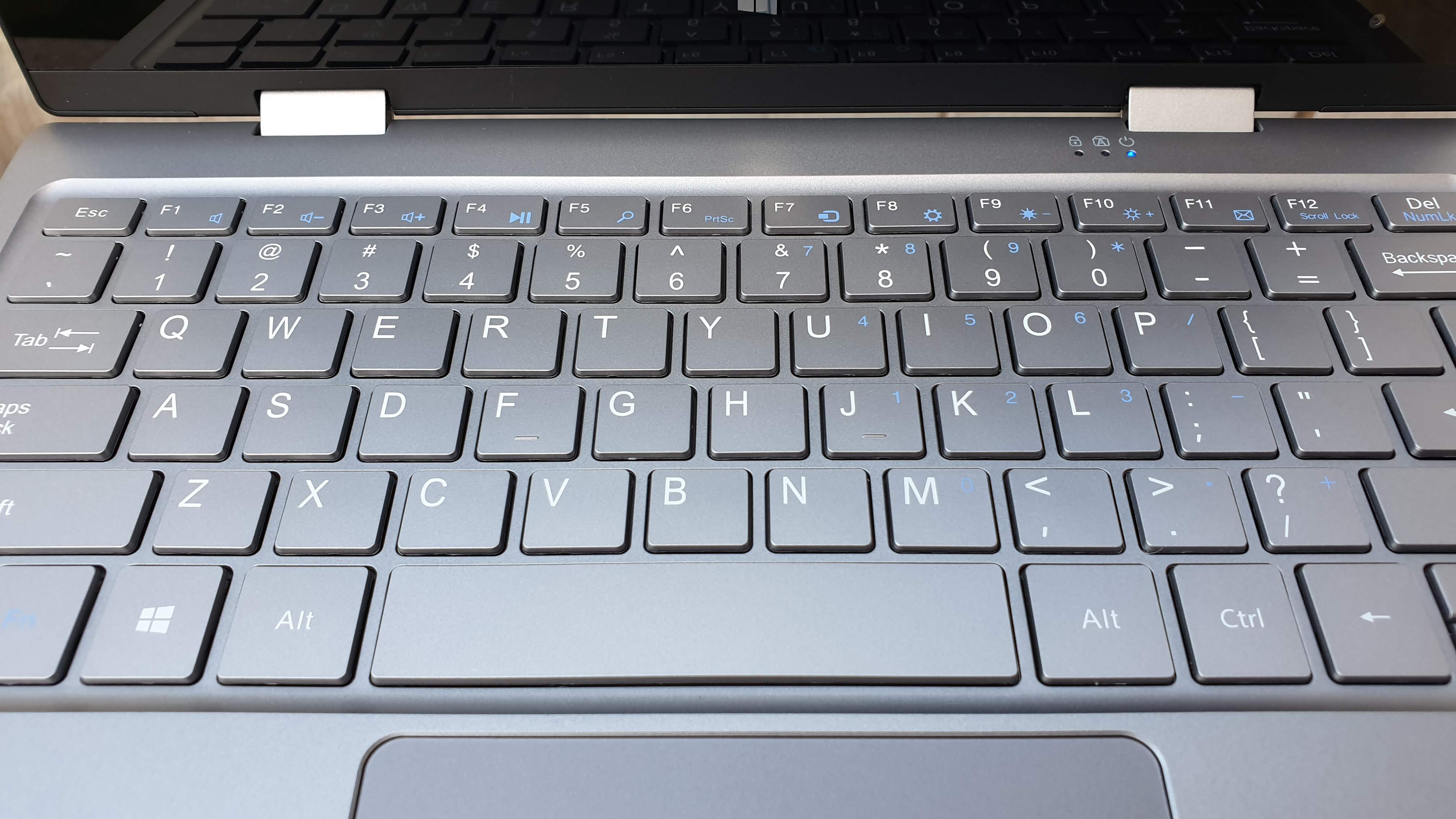
The keyboard is surprisingly springy and provides a good typing experience. It lacks the sort of wriggling space that a keyboard with more real estate would offer. The travel is sufficient though but the touch typists may complain about the size of the keys as well as the lack of visible page up/down, home/end labels.
Competition
Rivals to the Y11 would be convertible laptops that have the same form factor.
A newer version of the Teclast TBook F5 is available but costs more online. As mentioned in the opening paragraphs of this review, It is almost identical to the Y11, bar the CPU. In all honesty, there’s no real reason why you should choose the former in lieu of BMax’s candidate.
The only other available 11.6-inch we could find is the Dell Latitude 3190 which has a bigger battery capacity and runs on Windows 10 Pro but costs roughly twice the price with half the memory, half the storage and a much lower screen resolution.
Final verdict
Like the other laptops with 11.6-inch touchscreen displays that we have tested in 2018 and 2019, the biggest flaw of the Y11 is the shocking battery life. The battery capacity is to be blamed but there’s not much that the vendors can do given the volume constraints.
That may also explain why there are so few 11.6-inch devices on the market. Such a form factor, it seems, doesn’t offer the sort of versatility that a 13.3-inch would offer like a bigger screen on a convertible means more battery life, full size connectors, better placement for the webcam and possibly a better keyboard.
But if you really want a supremely portable rival that’s not bigger than an Apple iPad (but benefits from a permanently attached keyboard), then the Y11 fits the bill, very comfortably. It doesn’t have any rival right now and it is probably because most vendors know they won’t see the sort of ROI that moving to that form factor would bring.
- We've also highlighted the best business laptops

Désiré has been musing and writing about technology during a career spanning four decades. He dabbled in website builders and web hosting when DHTML and frames were in vogue and started narrating about the impact of technology on society just before the start of the Y2K hysteria at the turn of the last millennium.
